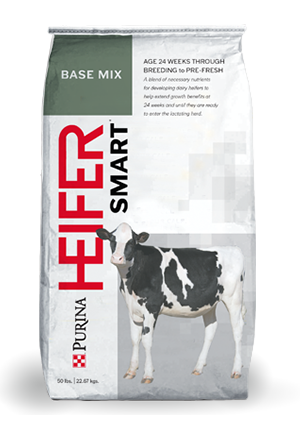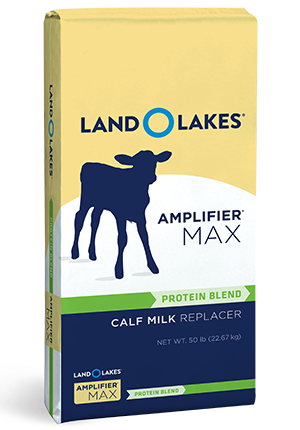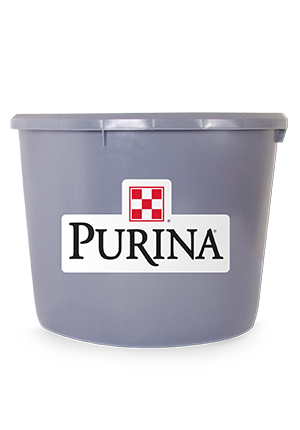
Warm Weather Ahead: Is Your Calf Starter on Par?
Calf : Cold & Heat Stress

As the temperatures rise and we head into the summer months, it is important to remember that calves can face nutritional challenges in the summer months as well.
When temperatures rise, calves’ energy needs escalate as respiration rates increase as they attempt to drive heat from their bodies. Coupled with this increase in energy is a reduction in feed intake and as a result, growth is reduced.1
At 78 degrees F and above, calves are susceptible to heat stress and can experience:
There are many excellent calf starter options to choose from. However, I challenge calf raisers to look beyond the nutrition label and educate themselves on the actual feed technologies and the supporting research that allow a superior product to deliver greater performance. Taking just a few minutes to become more aware of what technologies are in calf feed products will help develop healthier calves that then go on to become productive cows with more lifetime profit potential.
Want more starter tips? Find them here.
1 N.R. St-Pierre, B. Cobanov, G. Schnitkey, Journal of Dairy Science, Volume 86, Supplement, Pages E52-E77, 2003, Economic losses from heat stress by U.S. livestock industry
When temperatures rise, calves’ energy needs escalate as respiration rates increase as they attempt to drive heat from their bodies. Coupled with this increase in energy is a reduction in feed intake and as a result, growth is reduced.1
At 78 degrees F and above, calves are susceptible to heat stress and can experience:
- Decreased feed intake
- Reduced growth and increased respiration
- Less nutritional efficiency
Since calves utilize energy from their feed differently in warmer months, calf starter feeds formulated for warmer weather should include:
Appetite-stimulating technology
Keeping feed fresh, so that intake is consistent is important for ensuring that calves are consuming enough energy and protein, as these nutrients help support maintenance, immune function, and growth. Technologies help support increased feed intake of young dairy calves with less feed refusal and waste. With an increase in appetite, it is important to remember to keep clean, fresh water available to calves at all times.Effective larvicide
Larvicides are designed to help control emerging fly populations and therefore help reduce disease transmission and irritation by flies in calf housing areas. ClariFly® Larvicide is an effective technology for inhibiting the development of mature flies.Highly digestible organic trace minerals
Incorporating highly digestible organic trace minerals, specifically organic chromium, are proven in providing nutrients at the cellular level, allowing calves to utilize energy more efficiently.2There are many excellent calf starter options to choose from. However, I challenge calf raisers to look beyond the nutrition label and educate themselves on the actual feed technologies and the supporting research that allow a superior product to deliver greater performance. Taking just a few minutes to become more aware of what technologies are in calf feed products will help develop healthier calves that then go on to become productive cows with more lifetime profit potential.
Want more starter tips? Find them here.
1 N.R. St-Pierre, B. Cobanov, G. Schnitkey, Journal of Dairy Science, Volume 86, Supplement, Pages E52-E77, 2003, Economic losses from heat stress by U.S. livestock industry
2 Van Amburgh, M.E., F. Soberon, J. Karzses, and R.W. Everett, 2011. Taking the long view; treat them nice as babies and they will be better adults. Proc. 2011 Western Dairy Management Conference.

.png?width=300&height=430&ext=.png)


